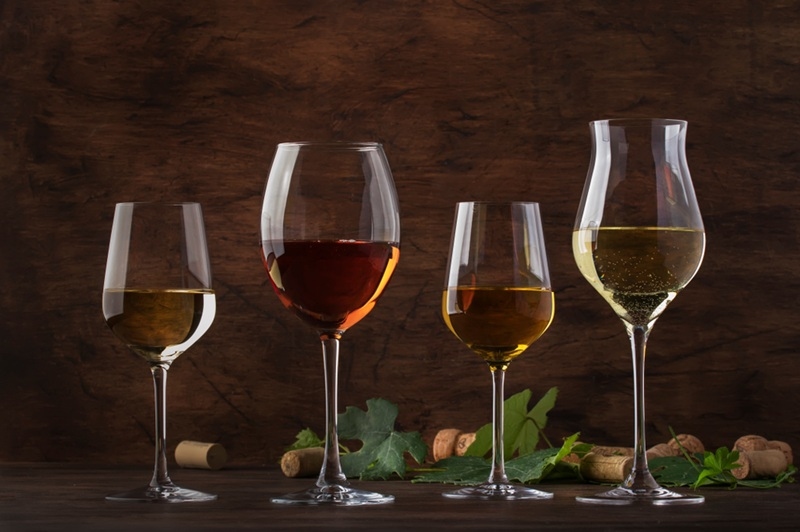A Guide to Hot Wines: The Best Varieties to Warm You Up

There is nothing quite like the comforting warmth of hot wine on a chilly evening or during a festive celebration. From European Christmas markets to intimate gatherings at home, hot wines uniquely elevate a cozy atmosphere. The delightful blend of spices, citrus, and sometimes a touch of sweetness combines with the wine's rich, deep flavors, creating an aromatic experience that captivates the senses.
Overview of Hot Wines
Hot wine, or "mulled wine" in many parts of the world, is a classic beverage made by heating wine, typically red, with various spices and fruits to create a warming, aromatic drink. This tradition dates back to the Roman Empire when the concept of spiced wine began. The Romans spread the practice throughout Europe, where it became a popular winter beverage. Over time, different regions developed their recipes and variations of hot wine, which can still be found today. In Germany, for example, Glühwein is a traditional hot wine often served at Christmas markets. It typically includes red wine, cloves, cinnamon sticks, star anise, and citrus peels. In France, vin chaud is the winter drink of choice, and in the Nordic countries, glögg is enjoyed, which sometimes includes raisins and almonds.
Why Hot Wines Are Special
Heating wine alters its characteristics, changing how its flavors and aromas are perceived. Adding spices and fruits complements the wine's natural flavors, often enhancing the sweetness and depth. The result is a comforting, fragrant drink that evokes the season's or occasion's warmth.
Learn More: The Guide of Chinese Wine: A Delightful Cultural Exploration
However, the charm of hot wine lies not only in its taste but also in how it brings people together. Whether served at a large gathering, a holiday celebration, or a quiet evening at home, hot wine fosters a sense of connection and relaxation.
Reasons to Consume Hot Wines
Warmth and Comfort
Hot wine is the perfect beverage to enjoy when you need extra warmth. After a long day outside in the cold, a warm glass of spiced wine can immediately help you relax and unwind. The heating process amplifies the wine's comforting effects and enhances its flavor and aroma, making every sip a delight.
Health Benefits
Hot wine isn't just delicious—it's also filled with potential health benefits. Red wine, the most common base for mulled wines, is rich in antioxidants such as resveratrol, known for its heart-healthy properties. The spices added to mulled wine—cinnamon, cloves, and star anise—are also packed with antioxidants and have anti-inflammatory properties. These spices may help improve digestion and support overall health during the colder months.
Festive Flavor
The rich, spiced flavors of hot wine are perfect for holiday gatherings or any winter event. The aromas of cinnamon, cloves, and citrus mingling together are nostalgic and celebratory, making hot wine the ideal beverage for any festive occasion. It brings joy and warmth to holiday dinners, parties, and outdoor events, enhancing the overall experience.
Versatility
Hot wine recipes are incredibly versatile. You can adjust the sweetness, acidity, and spice level to suit your preferences or experiment with different types of wines and spices to create your unique blend. Hot wines are adaptable to any palate, whether you prefer something sweeter, more citrus-forward, or loaded with spices.
Socializing
Sharing a pot of mulled wine is a communal experience that fosters socializing. Hot wine often serves as the centerpiece of conversation at holiday gatherings or outdoor markets, encouraging guests to come together over its warmth and aroma. It can be served in large quantities, making it perfect for hosting large gatherings or enjoying a cozy evening with friends.
Flavor Profiles of Hot Wines

Spicy and Warming
Many hot wines have a vital spice component, thanks to the inclusion of cinnamon, cloves, and nutmeg. These spices add warmth to the drink and provide a bold, aromatic flavor that complements the wine’s natural fruitiness. This flavor profile is perfect for those who enjoy a little kick in their drink.
Fruity and Citrusy
Citrus is often added to hot wine in fresh orange or lemon slices or zest. The citrus provides a fresh, bright note that balances the wine's and spices' richness. Additionally, fruits like apples or cranberries are sometimes used to give the wine a fuller, fruitier profile.
Sweet and Honeyed
Hot wines can be enhanced with sugar, honey, or maple syrup for those who prefer a sweeter drink. The sweetness softens the spices and brings out the wine's natural sugar. This flavor profile is ideal for those who want a dessert-like beverage or something to pair with sweets.
Herbaceous and Earthy
Some hot wine recipes call for the inclusion of herbs like rosemary or thyme, which impart an earthy, slightly bitter flavor. This balances the fruit's sweetness and the wine's richness, creating a more complex, layered drink. This flavor profile is perfect for those who appreciate savory beverage elements.
Bitter and Robust
Hot wine can also lean toward a more robust, tannic flavor, especially if the base wine is high in tannins. The spices and sweeteners often soften this bitterness, but it still provides a bold backdrop for the other flavors. Wines like Cabernet Sauvignon or Shiraz are frequently used for this profile, ideal for those who enjoy a robust and bold drink.
Check This Out: Explore the Delicious Flavors of Cotton Candy Grape Wine
Best Wines for a Hot Day
Pinot Noir
Pinot Noir is a light-bodied red wine with cherry, raspberry, and spice notes. Its lightness makes it an excellent choice for warming without overwhelming the senses. On a warm day, a gently heated glass of Pinot Noir with a hint of citrus and spice can be refreshing.
Beaujolais Nouveau
This young, fruity red wine from France is low in tannins and high in fresh, bright flavors like strawberries and raspberries. Beaujolais Nouveau is ideal for a summer twist on mulled wine, as its lightness pairs well with the delicate spices used in hot wine recipes.
Zinfandel
Zinfandel is known for its jammy fruit flavors, including ripe berries and dark cherries. It has enough body to withstand heat, but its fruity character makes it a refreshing option for a hot day.
Shiraz
Shiraz (or Syrah) is a medium- to full-bodied red wine with peppery and dark fruit notes. Its bold flavors and spicy undertones make it an excellent choice for lightly heating and enjoying during an outdoor summer evening.
Rosé
Rosé wines, with their light body and refreshing acidity, are not typically considered candidates for hot wine, but they can be lightly warmed and spiced for a modern twist on traditional mulled wine. The fruity notes of a good Rosé pair well with citrus and spice, making it a fun summer option
.
Best Wines for Hot Weather
Chenin Blanc
Chenin Blanc is a versatile white wine with apple, pear, and citrus notes. Its crispness makes it an excellent choice for lightly heating and serving with a hint of spice. Chenin Blanc offers a fresh, summery alternative to heavier red mulled wines.
Chardonnay
With its buttery, fruity profile, Chardonnay can be an excellent base for a lighter, creamier hotter wine. Gentle heating can enhance its vanilla, apple, and pear flavors, making it suitable for warm-weather drinking.
Grenache
Grenache is a juicy red wine with bright fruit flavors, including strawberry and raspberry. It’s light enough to be warmed slightly without becoming too heavy, making it an excellent option for hot-weather wine.
Verdejo
This Spanish white wine has citrusy, herbal notes that work beautifully when lightly warmed. Its refreshing acidity and bright flavors make it an excellent choice for hot-weather wine, particularly when paired with lemon and orange slices.
Vinho Verde
This light, slightly fizzy white wine from Portugal is a unique option for hot-weather wine. Its low alcohol content and bright, zesty flavors make it perfect for serving lightly warmed with a touch of spice.
Pairing Hot Wines with Food
Savory dishes like roasted meats, stews, or sausages pair well with hot red wine, mainly if the wine includes spices like cloves or cinnamon. The food's rich, hearty flavors complement the wine's bold, spiced notes. Cheeses like aged cheddar, Gruyère, or blue cheese can balance the sweetness of hot wine, creating a satisfying contrast. Desserts like gingerbread, apple pie, or chocolate truffles are perfect partners for sweeter hot wines. The spices in the wine can echo the flavors in the dessert, creating a cohesive taste experience.
Also Read: Learn to Make Blueberry Wine at Home: A Step-by-Step Process
Conclusion
Hot wine is more than just a beverage. It is an experience. Whether enjoyed on a chilly winter night or adapted for warmer weather, hot wine's rich, spiced flavors offer warmth, comfort, and a touch of festivity. From its origins in ancient Rome to its modern-day variations, hot wine brings people together, providing physical and emotional warmth.
This content was created by AI
No keywords available
-1717753922-r.jpg)


